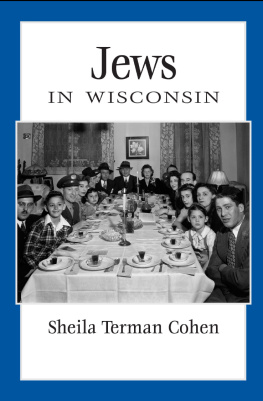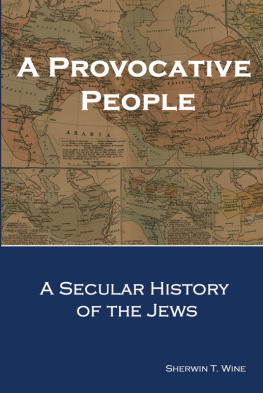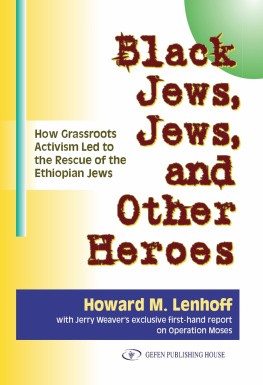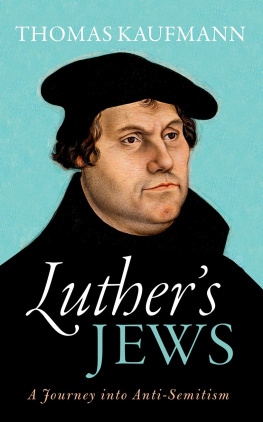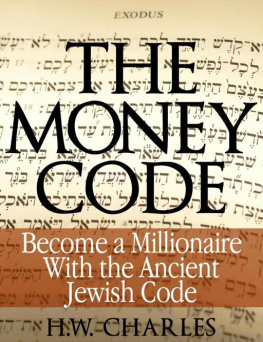ALSO BY ABRAHAM H. FOXMAN
AND AVAILABLE FROM
PALGRAVE MACMILLAN
JEWS AND MONEY
THE STORY OF A STEREOTYPE
ABRAHAM H. FOXMAN


JEWS AND MONEY
Copyright Abraham H. Foxman, 2010.
All rights reserved.
First published in 2010 by PALGRAVE MACMILLAN in the United Statesa division of St. Martins Press LLC, 175 Fifth Avenue, New York, NY 11010.
Where this book is distributed in the UK, Europe and the rest of the world, this is by Palgrave Macmillan, a division of Macmillan Publishers Limited, registered in England, company number 785998, of Houndmills, Basingstoke, Hampshire RG21 6XS.
Palgrave Macmillan is the global academic imprint of the above companies and has companies and representatives throughout the world.
Palgrave and Macmillan are registered trademarks in the United States, the United Kingdom, Europe and other countries.
ISBN: 978-0-230-62385-9
Library of Congress Cataloging-in-Publication Data
Foxman, Abraham H.
Jews and money : the story of a stereotype / Abe Foxman.
p. cm.
ISBN 978-0-230-62385-9 (hardback)
1. AntisemitismUnited States. 2. JewsUnited States. 3. Jewish capitalists and financiersUnited States. 4. United StatesEthnic relations. I. Title.
DS146.U6F69 2010
305.8924073dc22
201173
A catalogue record of the book is available from the British Library.
Design by Letra Libre
First edition: November 2010
10 9 8 7 6 5 4 3 2 1
Printed in the United States of America.
CONTENTS
by Paul Volcker
THE BERNIE MADOFF MOMENT
THE STORY OF A STEREOTYPE
THE FACTS BEHIND THE MYTHS
THE STEREOTYPE TODAY
WHEN EVERYONE HAS A MEGAPHONE
NOT SO FUNNY
DAMNED IF WE DO, DAMNED IF WE DONT
To my wife, Golda, and our children,
Michelle and Ariel, son-in-law, Dan,
And my grandchildren, Leila, Gideon, and Amirit
For their love and encouragement
To all who support ADLs efforts to fight
bigotry, stereotypes, and anti-Semitism.
FOREWORD
Jews and Moneya provocative title for a provocative book. Abe Foxman wants your attention!
As Director over many years of the Anti-Defamation League, he has a strong sense of mission, fighting bigotry in all its forms, and most particularly lingering anti-Semitism.
The word lingering is mine, not Abe Foxmans. My sense is that the stereotype of the avaricious Jew, isolated and insulated from the broader society, has been substantially reduced over my now long lifetime. That is a genuine achievement of an open and tolerant American society.
But Abe is a concerned man. Lingering doesnt mean absence. Stereotypes are hard to kill. The devastating financial crisisthe sense of unfairness, of loss of control, of lost hopesprovides fertile ground for anger, for scapegoating, for renewing ancient prejudices. And when a few highly publicized miscreantsMr. Madoff is one prime examplecan be identified by a particular religious affiliation and practice, the potential for reinforcing a stereotype is real.
Jews and Money is an eloquent plea to understand the dangerto resist that temptation to associate a complicated, agonizing, and hard to understand financial crisis with a specific ethnic group, however unfounded the relationship.
Foxman is forceful and convincing in setting the record straight, reaching back in history to identify the sources of anti-Semitic instincts, the twisting and manipulation of Jewish history and traditions.
In my view, he may underplay the progress that has been made, at least in this country, in ameliorating old social and religious prejudices and shibboleths. Three Jewish members of the Supreme Court, admired leaders of the financial world, prominent politicians, widely influential writers and intellectuals all taken for granted.
But I also realize I am not directly in the line of fire. Foxman has plenty of evidence from the long history of prejudice to justify his sensitivities and forebodings. The battle for tolerance and understanding is never really over, and never will be in the absence of vigilance.
In his forceful writing, Foxman brings a unique and convincing perspective to that effort. We need to remain on guard to understand and to respond to his concerns. That provocative title will demand attention!
Paul Volcker
Former Chairman, Federal Reserve Board
1
THE BERNIE MADOFF MOMENT
On the evening of December 11, 1995, businessman Aaron Feuerstein was with family and friends at a restaurant in Boston, Massachusetts. It was his seventieth birthday, and a group of well-wishers had gathered to throw him a surprise party.
In the midst of the festivities, someone walked in with horrifying news. Its the factory. A boiler exploded. People are hurt, and the buildings are on fire.
No one had to ask, What factory? Everyone understood the man was referring to Malden Mills, the textile plant that Aaron Feuersteins grandfather had built in 1906 and that Aaron himself had managed for almost thirty years.
Within the hour, Feuerstein and his friends were part of a large crowd of onlookers, watching firefighters battle the blaze. It had grown into a six-alarm conflagration, drawing 200 firefighters from as far away as New Hampshire and Boston.
What happened in the days and weeks that followed has become a classic story of business and personal ethics, one that Im sure will continue to be told for generations to come. As Ill explain, its also an important story for what it reveals about our societys attitudes toward Jews and Judaism. This is an aspect of the Aaron Feuerstein saga that few people have noticed or commented on. Yet its deeply relevant and profoundly important today, with our economic and social turmoil and as age-old prejudices and animosities have once again reared their heads, fomenting resentment and dividing communities.
The 1995 fire at Malden Mills wasnt just bad news for Feuersteins companyit was a potentially devastating blow to an already depressed post-industrial community.
Malden Mills employed 2,400 people, many of them recent immigrants from countries ranging from Italy, Portugal, and Israel to the Dominican Republic. Thousands of people relied on the textile business for their survival. Now, many of them had rushed to the scene and were watching their dreams of the future literally going up in smoke.
Paul Coorey was the president of Local 311 of the Union of Needletrades, Industrial and Textile Employees, which represented many of the workers at Malden Mills. A few days later, he recalled the scene: I was standing there seeing the mill burn with my son, who also worked there, and he looked at me and said, Dad, we just lost our jobs. Years of our lives seemed gone.
When the flames finally subsided, three of the four factory buildings had been destroyed. (The fourth had been saved, in part, through the heroic damage-control efforts of a team of employees that battled the blaze even after firefighters declared it hopeless.) Thirty-three employees had been injured, though thankfully none had died. The damage was estimated at some $500 million. Families throughout northeastern Massachusetts were in despair, wondering where their next paycheck was coming from.
Many people in Aaron Feuersteins position would have broken down under the shock. But Feuerstein refused to shed a tear. He bolstered his spirits by recalling a favorite passage from Shakespeares


